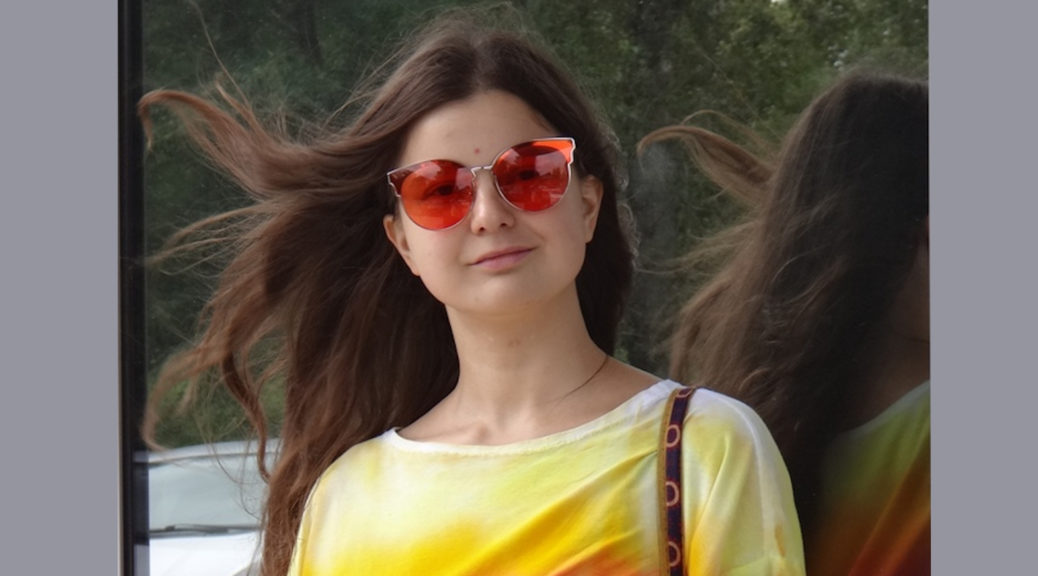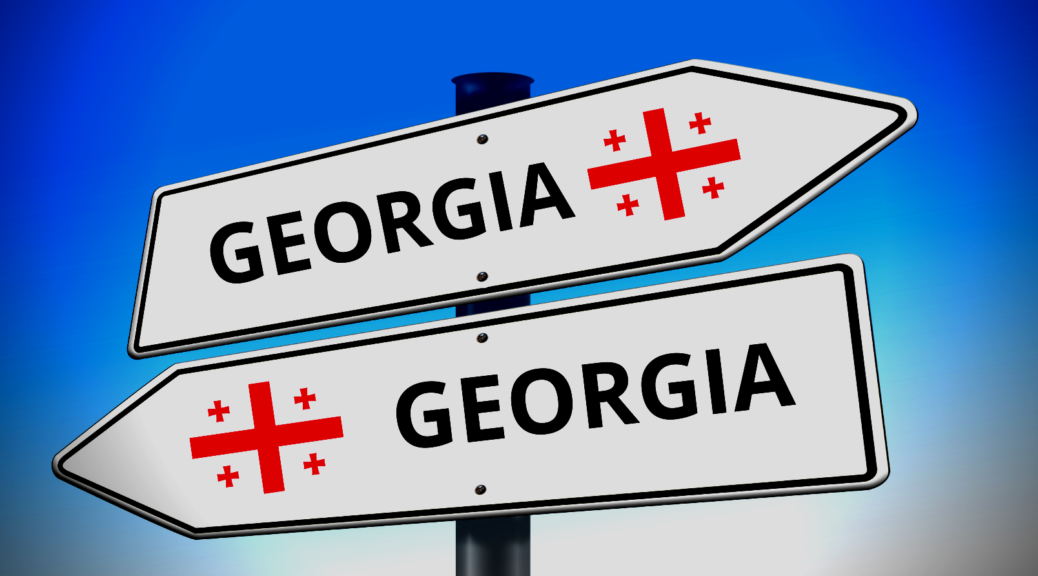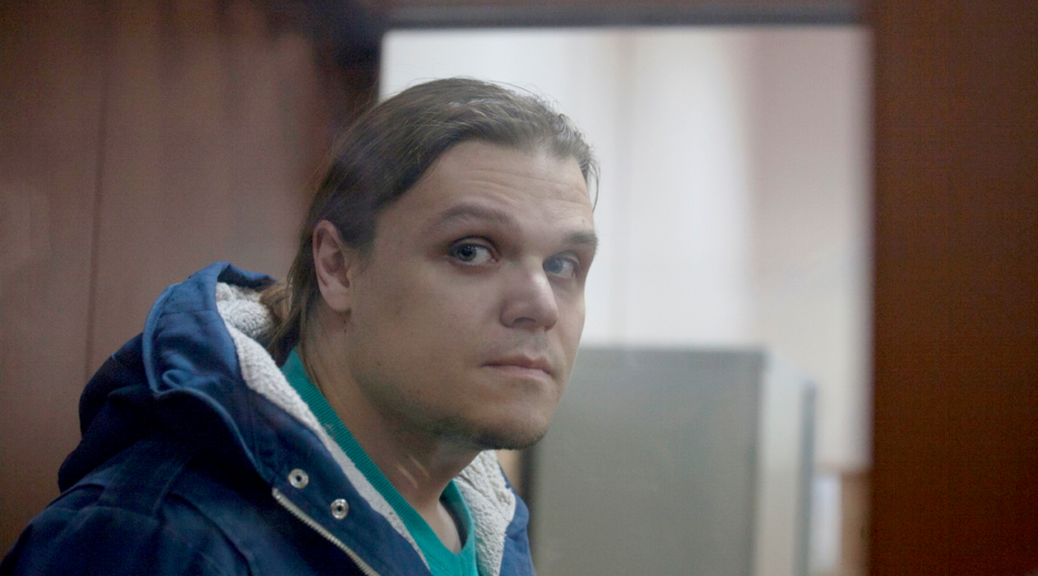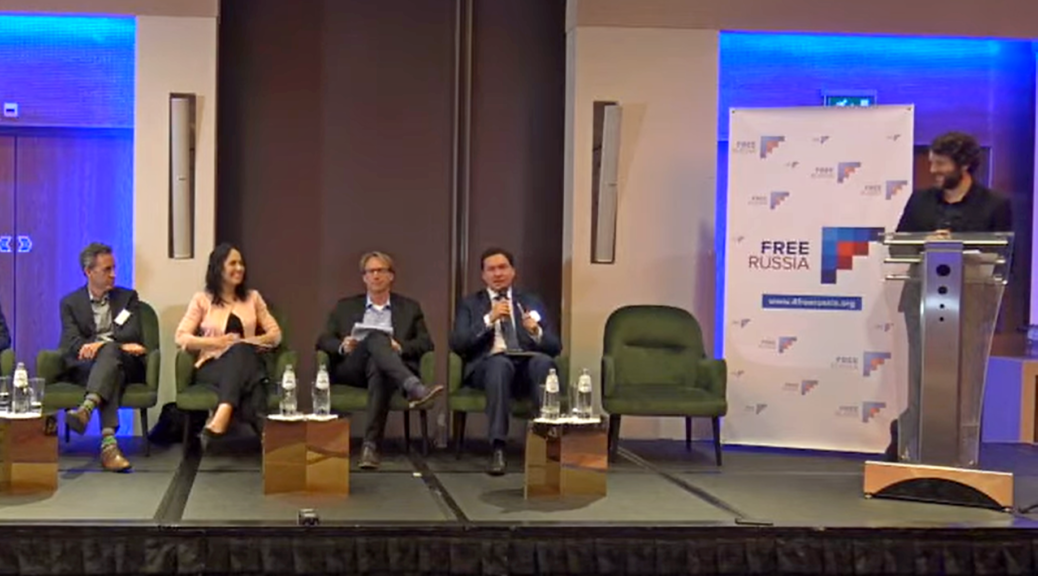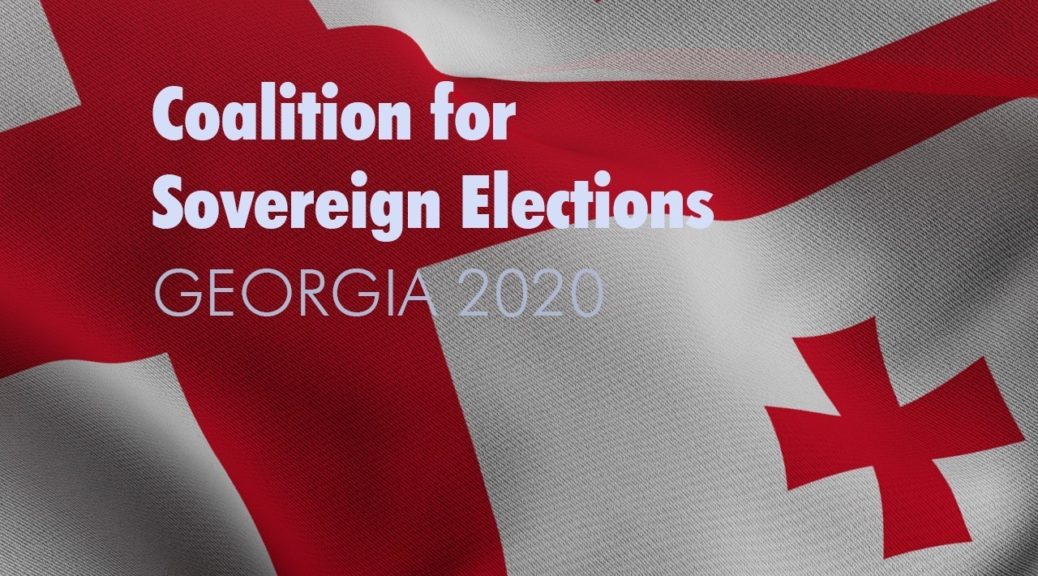Feminist artist Yulia Tsvetkova from Komsomolsk-on-Amur was accused of illegally producing and distributing pornographic materials on the Internet (Paragraph “b”, Part 3 of Article 242 of the Criminal Code of the Russian Federation, punishable by up to six years of prison). The charges were connected to her role as an administrator of a feminist body-positive online page ‘The Vagina Monologues,’ which has published abstract depictions of female sexual organs and items similar to those either drawn by Tsvetkova or posted earlier on the Internet with the aim of removing the taboo surrounding female physiology. Tsvetkova has been under house arrest since November 23, 2019.
Continue reading The Kremlin’s Political Prisoners: The Case of Yulia TsvetkovaTag Archives: Kremlin Aggression
Olexander Shumkov, a Ukrainian citizen from the city of Kherson who was serving in the Ukrainian armed forces at the time of his kidnapping, was kidnapped at the border between Ukraine and Russia in August 2017. After that he was relocated to Russia and charged with committing a crime under Article 282.2, Section 2 of the Russian Criminal Code (taking part in activities of an extremist organization) on the grounds that, allegedly, he is a member of Right Sector, an organization banned in Russia. On December 4, 2018 Olexander Shumkov was convicted to 4 years of prison by a judge Victor Ruhmakov of Sevsky regional court in Branskaya oblast. Continue reading The Kremlin’s Political Prisoners: The Case of Olexander Shumkov
2020 is promising to be the year of high importance and big decisions for Georgia. The country will have to decide whether it wants to move forward with its pro- democratic aspirations and incorporate into the Western society or continue growing weaker with no ability to stand against the Russian interests in the country.
The U.S. and EU support and special attention are critical to ensure free and transparent elections, especially if the government reneges on its promise of proportional system and moves to conduct the 2020 elections under the existing mixed electoral system. Attention of the international community and Georgia’s strategic partners, especially when it comes to monitoring of the election process, will help support fair elections, and empower Georgia to stand firm for its pro-western choice and reemerge as a regional leader in reforms and democratic development.
• The Gavrilov Night
• The Political Context
• The Kremlin’s campaigns in Georgia 2019 – 2020
• Development of the Anaklia Port
• Recommendations
Please download the PDF to learn more.
ABOUT THE AUTHOR
Egor Kuroptev is a Director of Free Russia Foundation’s office on South Caucasus, media manager and political expert from Russia based in Tbilisi, Georgia since 2012. He started his career at the Echo of Moscow. From 2017 he holds the position of director for media project: “Information in Russian VS Soft Power of the Kremlin”. For three years he has been producing a famous talk-show “Border Zone,” where he discusses regional conflicts, foreign policy of Russia as well as NATO and EU politics on the post-Soviet space.
A criminal case of violence against government officials and the riots in Moscow, which allegedly occurred on July 27, 2019 during the largest “unsanctioned” protest rally, was opened on July 30. More than 20 people were accused during this investigation.
Continue reading The Kremlin’s Political Prisoners: Sergei Surovtsev
On December 11, Free Russia House held a discussion, “Kremlin hostages: Victories, difficulties, new challenges” as part of the 4th human rights non-conference organized in Kyiv. The discussion was joined by Ilya Novikov, a lawyer to a number of Ukrainian political prisoners, and Igor Kotelyanets, head of the Association of Relatives of Political Prisoners.
Participants discussed multiple aspects of further tactics for the public campaign dedicated to the release of Ukrainian political prisoners still kept behind bars after the big exchange that happened in September. Special attention was drawn to the Normandy format meeting held in Paris on December 9, attended by Angela Merkel, Emmanuel Macron, Volodymyr Zelensky and Vladimir Putin.
Igor Kotelyanets plays a leading role in the informal association of the relatives of Ukrainian citizens persecuted in Russia and Crimea on political grounds. He is a cousin of one of the political prisoners who was lucky to be released during the autumn big exchange. He also cooperates closely with the Ukrainian government, speaks on international political platforms, and actively lobbies for legal amendments to Ukrainian laws related to the political persecution of Ukrainians in Russia. According to various estimates, there are from 90 to 114 Ukrainian political prisoners on the lists of human rights organizations and the Office of the Ukrainian Ombudsman for Human Rights. As well as many others, Igor was attentively following the news after the Normandy meeting, as he knew that agreements on the new exchange were already in place.
At the Normandy meeting it was announced that an agreement had been reached on the exchange of “all for all.” Even though this wording sounds very promising, in fact it brings a lot of uncertainty as everyone understands it in a different manner. Several hours later, at a briefing by Vladimir Zelensky with the Ukrainian media, it finally became clear that the “all for all” format actually implied war hostages in the Donbass region, leaving political prisoners out of the equation. “I have no doubt that Zelensky passed the complete lists, including both prisoners of war and political prisoners. Therefore, we can probably conclude that it was Russia who did not agree to the exchange of truly ‘all to all.’ The release of political prisoners in the Crimea and the Russian Federation will, apparently, be the subject of discussion at the further Normandy meetings,” Igor Kotelyanets concludes sadly.
Ilya Novikov, the lawyers of Nadia Savchenko, Ukrainian sailors brutally detained in the Azov sea and other Ukrainian prisoners, believe that the situation will not change before the end of the year, even though there were rumors after September that a second wave of prisoners’ release would have been launched before 2020. “Putin,” says Novikov, “understands this ‘exchange fund’ as a tool for strengthening his position in the negotiations. And here arises the following logical question. Notwithstanding the monumental effort Ukraine makes to free its citizens from Russian prisons, is it even possible that the country can achieve results on its own without external help or Western assistance in the person of Angela Merkel, Emmanuel Macron or even Trump is an indispensable prerequisite?”
An illustrative case in this regard happened a couple of years ago and involved Norway. On December 5, 2017, a Norwegian citizen, Frode Berg, was arrested in Moscow on suspicion of espionage and Novikov was hired to represent him before the court. From the very beginning it was clear that Berg would be convicted, as no single case of free pardon happened in Russia under this article since 2000. Thus, from the very first day, the Norwegian government, for which it was the first shocking case of such a nature, took this matter as seriously as possible. The Lithuanian side was involved in the process, as Norway did not have its own “exchange fund”. Lithuania gave Russia two Russian agents, and in return received two Lithuanian citizens and Mr. Berg. In order to make this exchange possible, Lithuania had to amend the legislation on the pardon procedure. Russia attempted to force Americans, through the Norwegians, to organize the release of Viсtor Bout. His return is idée fixe for Russia, but the Americans uncompromisingly responded, “It’s out of option.”
In the end, the trigger for the release of Mr. Berg was an accidental combination of circumstances which was helpful only against the background of long preliminary preparations by Norway and Lithuania. On October 24, 2019, Russian Minister of Foreign Affairs Sergey Lavrov arrived in the hometown of Mr. Berg – Kirkenes – on the occasion of the 75th anniversary from the date of the liberation of northern Norway by Soviet troops from the Nazis. The celebration was attended, among others, by the King of Norway. Appropriate location, together with the presence of high-ranking state officials and public pressure, preceded by long negotiations and legislative changes, lead to the successful release of Frode Berg.
Apart from minor disagreements in the Barents Sea regarding fisheries, Norway does not have any other serious conflicts with Russia. The Berg case was nothing compared to the Ukrainian situation. But even against this background, the release of one person required two years of hard work, involvement of a third party and changes in the legislation, and yet the result was uncertain until the very end. The only dubious advantage for Ukraine in comparison with Norway is that Ukraine has a considerable “exchange fund.” But for Russia, Russian citizens have no value.
There were only two persons important to the Putin administration – Vyshinsky and Tsemakh. Negotiations on the September exchange got off the ground when the question about Vyshinsky was finally raised. Before that moment, the situation dragged on for the previous three years without any progress.
Memorial Human Rights Center (HRC) included a well-known Russian opposition activist Mark Galperin in the list of political prisoners for the second time. Previously, Memorial Human Rights Center recognized Galperin as a political prisoner in 2018 when he was under a house arrest on charges for extremism.
Continue reading The Kremlin’s Political Prisoners: The Case of Mark Galperin
“… in no circumstances shall a State be entitled to be called a democracy unless it does, in fact as well as in law, guarantee to its citizens liberty of thought, assembly and expression, as well as the right to form a political opposition.”
This is one of the declarations of the Resolution adopted at the end of the Congress of Europe held in The Hague in 1948 that laid the foundations of a unified Europe and the Convention for the Protection of Human Rights and Fundamental Freedoms which is the very core of the Council of Europe’s purpose. Then, as now, it raised expectations.
Expectations
First of all, what do we expect from the Council of Europe, the European Court of Human Rights, and its Conventions? Are they just tools to facilitate “communication and dialogue”? Just another reason to meet and talk?
Or do they provide the framework for human rights principles and guidelines that every signatory state should comply with to adequately serve and protect its citizens?
What do we expect from the signatories when it comes to their level of compliance? We expect them to show tangible effort to fix what is broken when shortcomings or violations have been identified, right?
What do we expect the Council to do when faced with a continued refusal to address such problems? Also, how should the values stipulated in the treaties be upheld and prevented from being hollowed out by the signatories’ turning a blind eye to treaty violations?
We expect each other to respect the existing principles, rules, and guidelines, and hold each other in check by promoting the engagement of governments and civil society in demanding that club members comply with resolutions and court rulings. Does impunity fit in here? Not really.
Club
Russia threatened to leave the club. But let’s face it: It actually wants to stay in. It just tries to intimidate the rest of the club to be let off the hook. Feeling sought-after, it demands immunity by dictating conditions of its membership, and successfully at that.
This brings us to Russia’s contribution to the club as its largest member. Its track record leaves much to be desired, and its lack of commitment calls into question the argument for having Russia in the club.
After all, why would it want to be a member if it intentionally disregards it, and why would the rest of the club want Russia to be part of it?
Many argue that if Russia is in the club, it will be forced to play by the club rules. That is with Russia in, Russian citizens will have the protection of the ECHR, and the channels of dialogue will remain open. If Russia showed true commitment and sincere willingness to change for the better supported by clear signs of improvement, one could accept a slow pace.
The Kremlin’s trick however is to time and again sell the illusion that it will really abide by the rules if the community lets it off the hook just one more time. The reality though is that it never delivers on this promise. It simply uses the same trick over and over again after invading and occupying territories of its close neighbours; interfering in British, American, Georgian or Dutch election campaigns; refusing to be held accountable for the downing of a civilian airliner, targeted assassinations in European states, or human rights abuses at home against opposition or dissidents.
Despite countless resolutions, dialogue efforts, and punitive measures Russia shows no signs of improving its behavior or willing to acknowledge its wrongdoings when it is caught in the act. Despite its club membership, Russia is in reverse gear.
So much for the argument that Russia will play by the rules once it is part of the club.
It just goes to show that an inclusive, cooperative, and civilized approach with Russia does not work.
Deformation of Values
Yes, Russian citizens can go to the ECHR, but if the Russian authorities overturn or simply do not implement its decisions, how are Russian citizens protected by the European Convention on Human Rights? They are still at the mercy of the Kremlin’s whims.
By now, we should have realized that it is an illusion to think that the current Russian political establishment – first and foremost, the Kremlin – will ever play by the rules.
The Kremlin respects neither its club co-members nor the conditions and obligations of its membership. It disrespects its own citizens as well whenever it feels like it. This means that if the Council of Europe refuses to confront Russia’s chronic attitude, it will itself suffer from a deformation of values.
Moreover, the Kremlin has proven that it can simply overturn sanctions by threatening to leave the club, thus rendering this punitive measure useless. After all, if it worked once, why wouldn’t it again?
Unless, of course, the club members agree that it has been enough and begin to truly defend what they value: the clubhouse, and what is being protected by its roof. For that, they need to agree not to allow one bully to bring down the entire club. By submitting to the Kremlin’s blackmail, they set the clubhouse on fire from the inside. Can we prevent it from burning down to the ground? Yes, we can. It’s not too late. But we have to act.
We need to live up to the expectations we have set ourselves. We need to follow the existing criteria, values and norms. We need to hold each member to account by demanding to fix violations and to demonstrate tangible progress. And we certainly must not succumb to blackmail over membership.
We cannot tolerate the bully’s victim-blaming techniques. We cannot let cynicism and moral nihilism win, thus allowing impunity to become the norm.
In conclusion, civil society and European governments should put more pressure on Russia to make it comply with the conventions it voluntarily signed.
If takes punitive measures, such as disciplinary sanctions, then so be it. And they should not be lifted until the perpetrator takes steps to resolve the issue that resulted in these sanctions. Compliance is not negotiable. Otherwise, the value of the rules-based order will erode, undermining its very foundations.
If Russia wishes to remain a member it has to accept the existing club rules and the consequences for violating them. Ultimately, we should not be afraid to let a member go if he basically refuses to cooperate.
The European consensus on an EU Magnitsky law that was reached earlier this week shows that a long term commitment of civil society, politicians, and governments to pushing for measures against human rights violators and impunity ultimately pays off. There is no escape. And this is the message that all involved actors should continue to convey. There is no escape from justice.
Working group of the “Coalition for Sovereign Elections” calls International community to give strong immediate reaction on aggression of the Kremlin in Georgia. Continue reading Coalition for Sovereign Elections Calls International Community to Give Strong Immediate Reaction on Aggression of the Kremlin in Georgia

